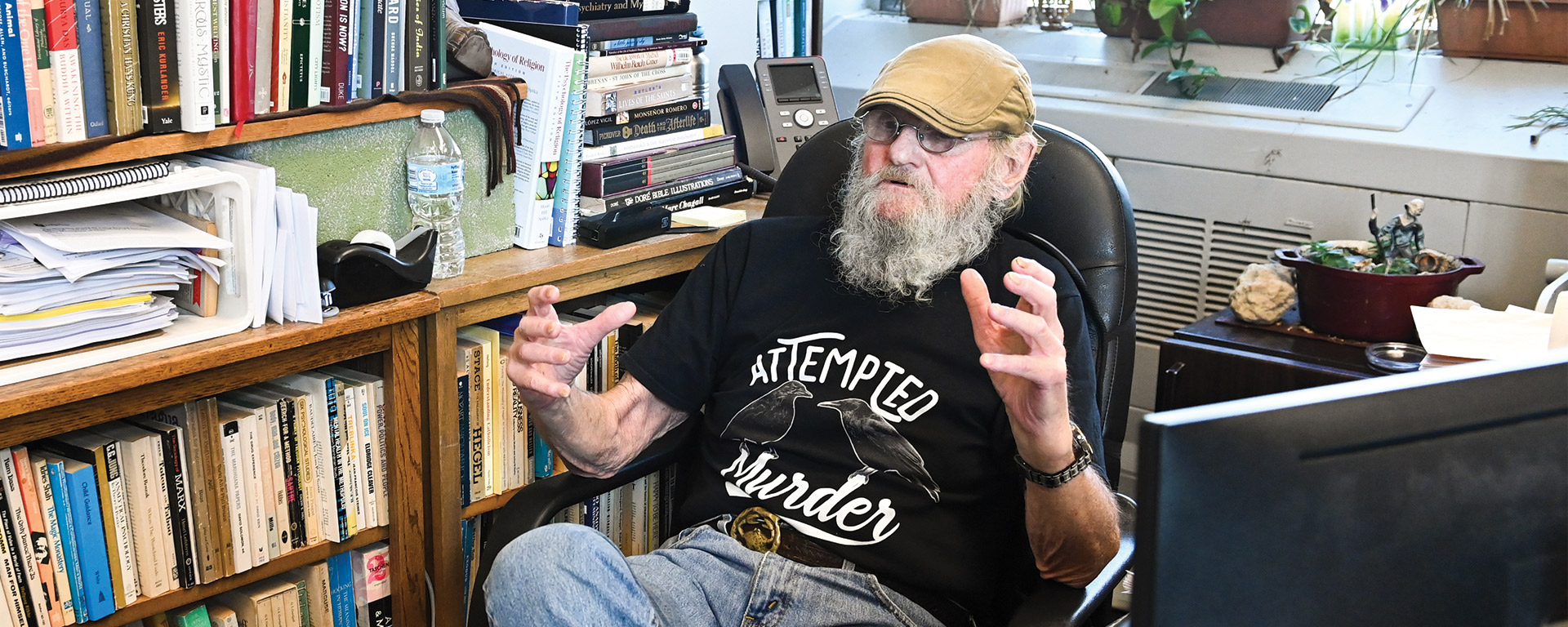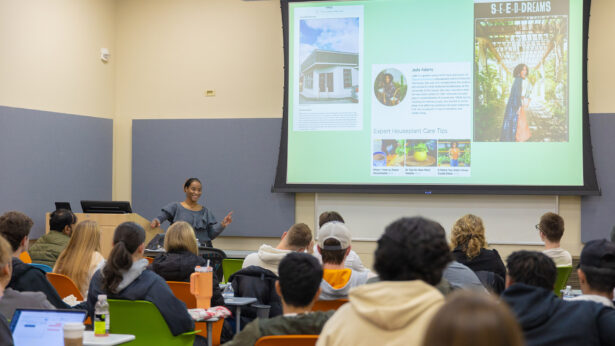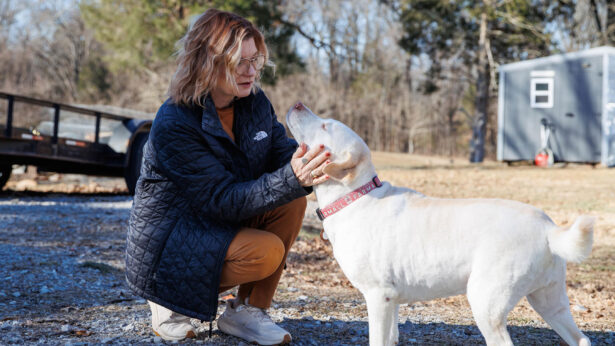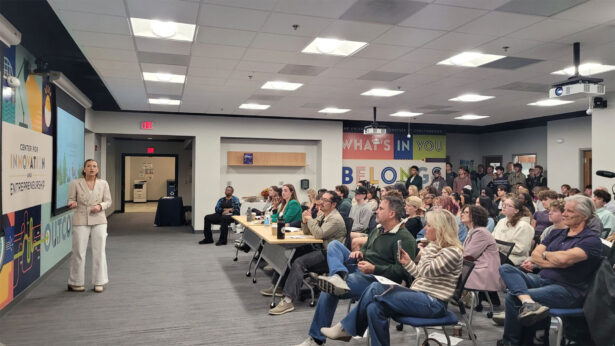Awe-inspiring civilizations. Destruction of awe-inspiring civilizations.
Beautiful artwork. Horrible desecrations of artwork.
Scientific wonder. Crushing scientific discoveries.
Throughout the millennia, religion has been one of the ever-present linchpins of humanity, affecting both daily and historical life across the globe.
With such power, though, could religious and spiritual beliefs reach even more deeply, perhaps affecting a person right down to the DNA? Not speaking metaphorically, either.
Ralph Hood, professor of psychology at UT Chattanooga, is researching just that. He is one of 34 researchers funded by a three-year, $9.5 million grant from the John Templeton Foundation to participate in an ongoing, multi-generational British study.
Hood, whose expertise is religion and spirituality, recently joined the Avon Longitudinal Study of Parents and Children, a world-leading, long-term, population-based research project that has traced multiple generations from the Avon region of the United Kingdom. In 1992, 14,000 pregnant women in western England were recruited to be a part of the study, which has now expanded down to the women’s grandchildren.
“They collected data from day one on religious beliefs, their parents’ beliefs, their cohort’s beliefs,” Hood says. “They also are able to compare people that go to religious parochial schools versus public schools, so we have that data.”
His research is the first time the study has looked at the effects of religion and spirituality across generations.
“The study will now be balanced between physical phenomena, medical phenomena and religion/spirituality,” Hood says.
In general, Hood and other researchers will study how the subjects’ religious practices affect health, happiness and a family’s overall feelings about life in general. And even down to if it affects DNA.
Religion and spiritual beliefs are not the same, Hood explains. Religion is built on a particular faith or system of beliefs such as Christianity, Islam or Judaism. Spirituality is belief in God or a universal power but is not connected to a denomination or specific belief system. Religion can be more rigid in the doctrines on which it’s based, he says.
In the Avon study, among other measurements, researchers have taken blood and bone samples, kept track of illnesses, what books have been read, calculated the amount of pollution the subjects encounter and how close they live to green spaces. They’ve studied the subjects’ eating habits, what they’re studying in school, their friends and relatives, their sexual partners, their careers.
Hood notes that religious and spiritual beliefs may affect a person’s beliefs in medicine, including their willingness to take the COVID-19 vaccine.
“It turns out that religious people and spiritual people have a wide range of reasons to use medicine,” Hood explains. “So, even though medicine can be effective, you have countries that vary in religious and spiritual beliefs and whether or not they will accept vaccination.”
Religious and spiritual beliefs can affect someone beyond health consequences, he says. They can make a person more adventurous or more cautious. They can dictate the level of education. They can determine what a person reads, eats and drinks.
“If you’re somebody who likes security, if you like clear guidance, then you might like a religion that gives you clear guidelines and answers,” Hood says.
“But if you’re a person who is open to experience and investigating options, what you’ll find out is, the longer you’re in that religion, the more you find its limits, and then you look elsewhere.”



